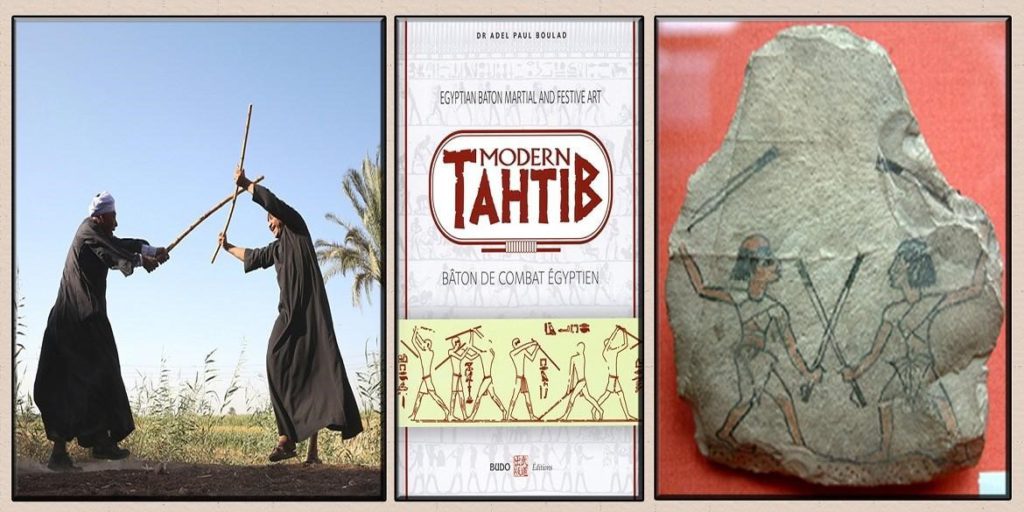Tahteeb, Stick game
Tahteeb was practiced in ancient Egypt as a form of martial arts. Its social function and cultural meaning has changed to take festive character and turned to be a game for entertainment and competitions between men in Upper Egypt, but some of the symbolism and values associated with the practice remain. Performed in front of an audience, it involves a brief, non-violent interaction between two adult male players, each wielding a long thick wooden stick while folk music plays in the background (usually drum and mezmar). Complete control must be exercised as no striking is allowed. Practitioners are male both young and old, mostly from Saee’dy populations in Upper Egypt, with full admiration from women and encouraging from mothers to their sons to train and practice the game,particularly rural areas where the Tahteeb stick has been used by inhabitants as part of their daily lives and considered a sign of manhood. The rules of the game are based on values such as mutual respect, friendship, courage, strength, chivalry and pride, cultural meanings of the games transmitted with the game from generation to generation such as not hitting a man in his head cover “ Emah” as it is a symbol of pride in Upper Egypt.. Tahteeb usually performed in both public and private social occasions. Sometimes competitions are held to encourage new players and special Tahteeb evenings involving different governorates that can last almost a week. There is an annual Tahteeb festival held where the players from all Upper Egypt governorates meet and compete. Although it is a male game, mothers encourage their son to learn the stick game and participate in the competition. Transmission occurs within families, neighborhoods and to anyone who wishes to learn nowadays there are centers of Tahteeb to teach the game specially after inscription on UNESCO representative lists of Intangible Cultural Heritage of Humanity. The game gives participant confidence from skills acquired and a sense of pride performing before their community. It also helps to strengthen family ties and foster good communal relations.


